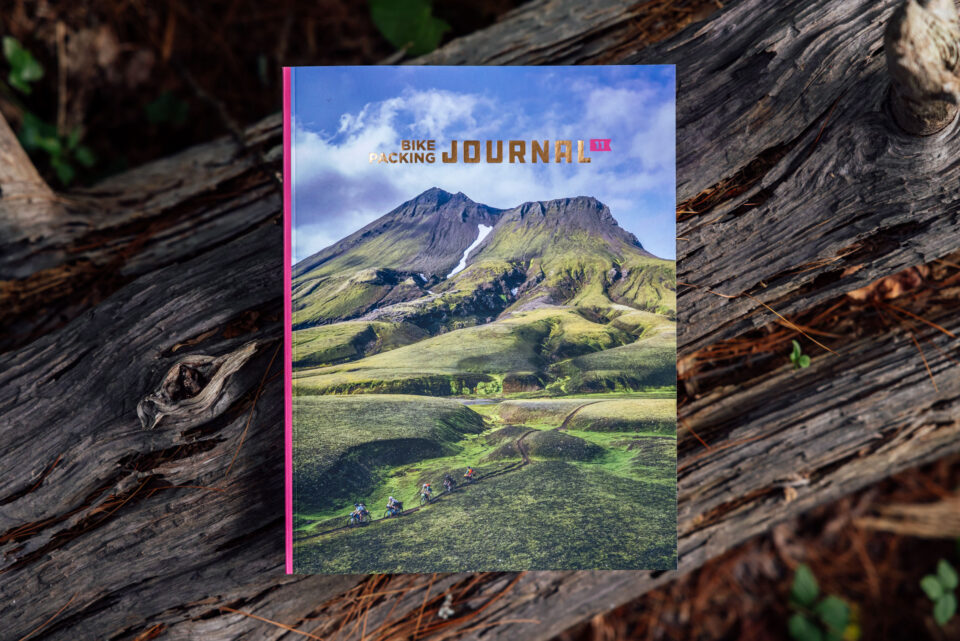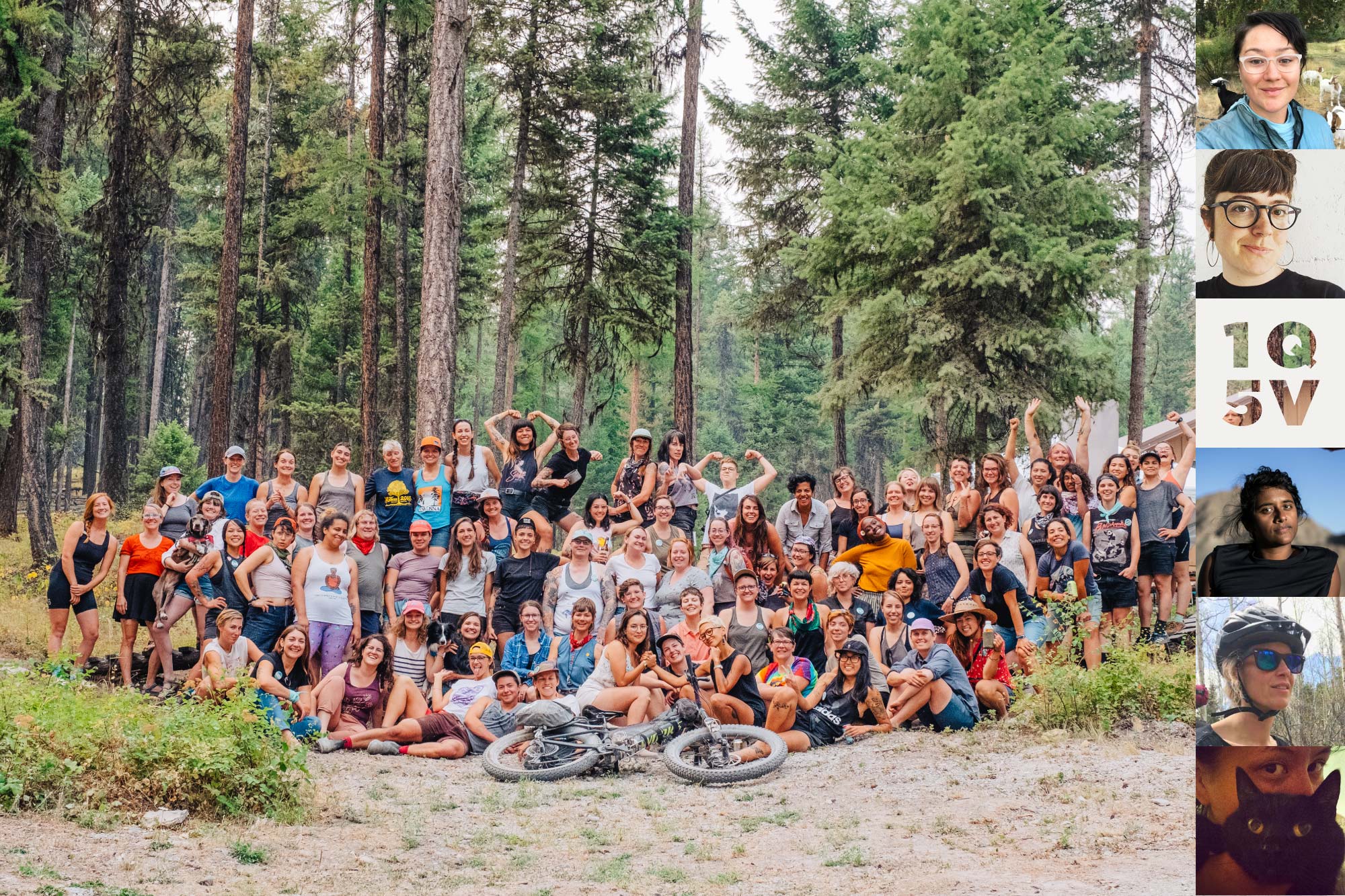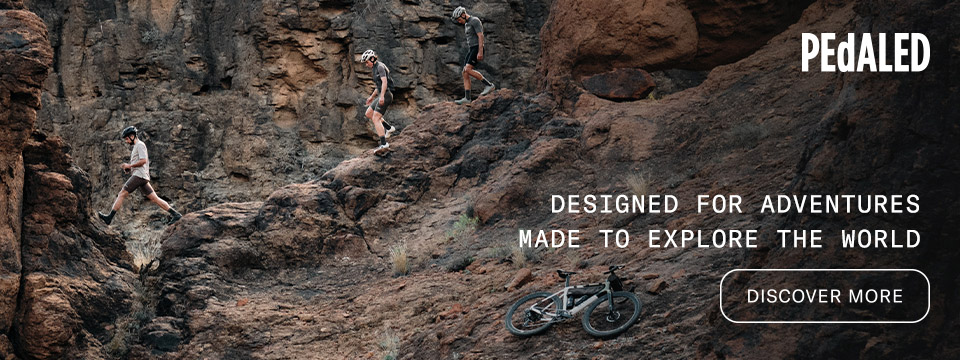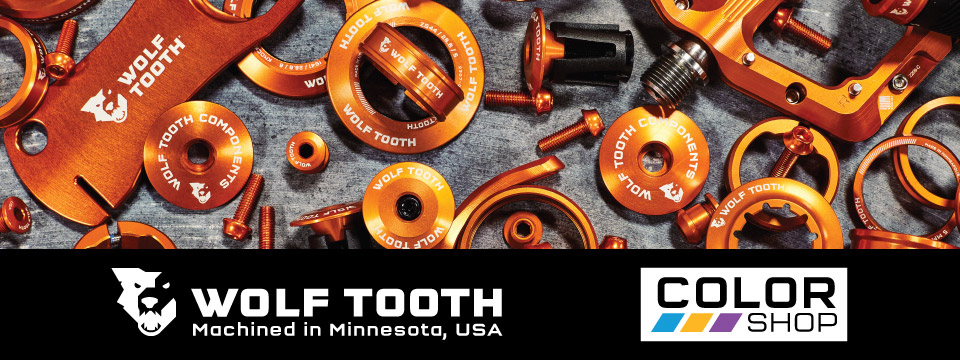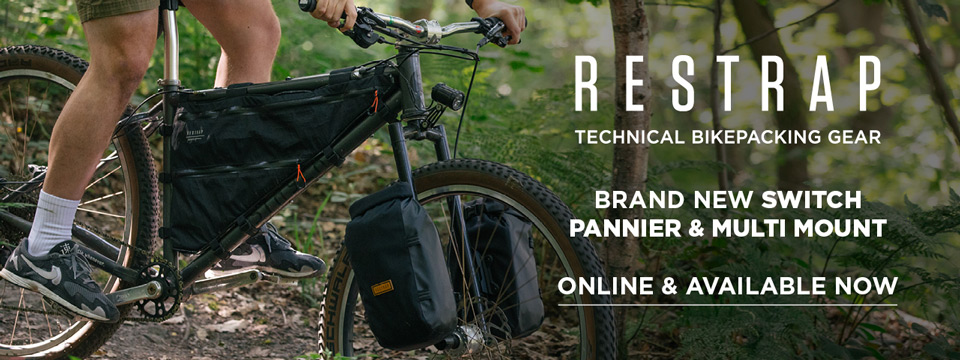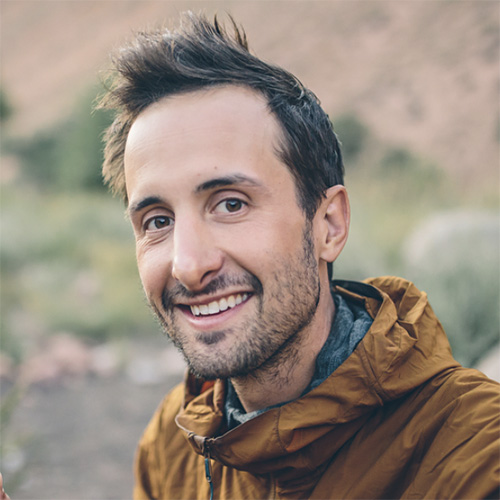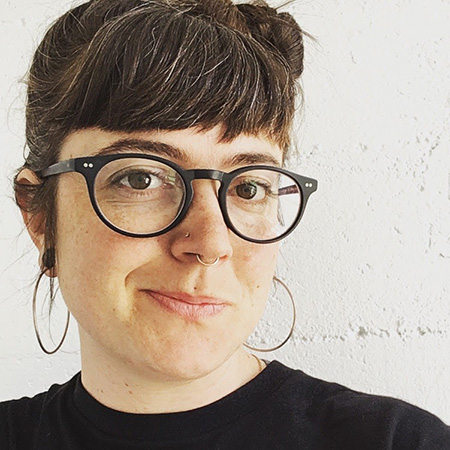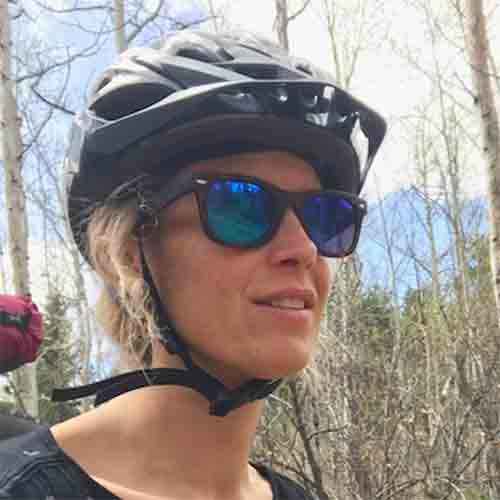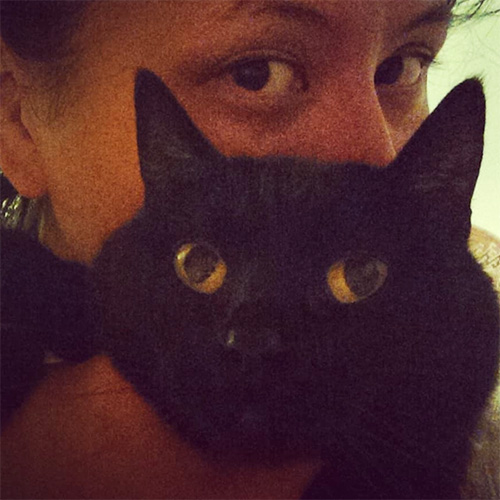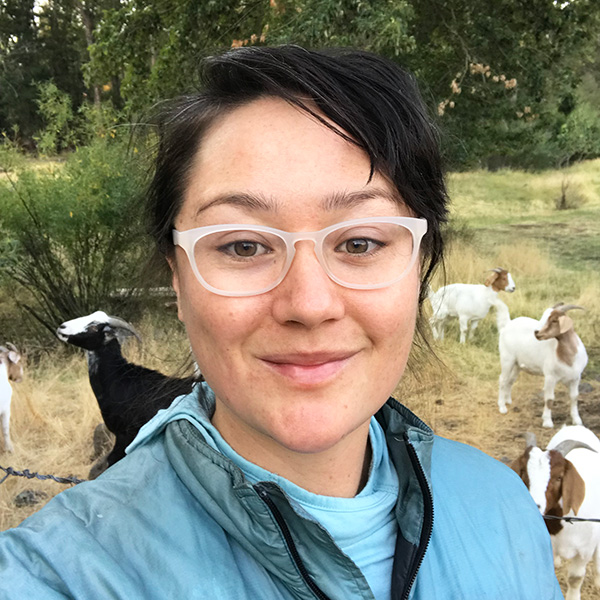One Question, Five Voices: Takeaways from the WTF Bikexplorers Summit
Back in August, the inaugural WTF Bikexplorers Summit brought together around 100 women, trans, femme, and non-binary cyclists for an incredible long weekend of learning and riding. We asked five attendees to share their top takeaways from the event in the latest installment of One Question, Five Voices…
PUBLISHED Oct 1, 2018
Group photo by Gritchelle Fallesgon (@gritchelle)
Held this summer in beautiful Whitefish, Montana, the first ever WTF Bikexplorers Summit was a long weekend of riding, clinics, and community building designed to encourage and connect women, trans, femme, and non-binary cyclists who use their bicycles to explore. Over the course of four days, participants went on group rides, shared meals, and attended breakout sessions and presentations such as, “A User’s Guide to Public Lands,” “Bikepacking for Education and Advocacy,” and “Cyclotherapy.”
It seems like just about everyone left the event feeling empowered and inspired, and we’re thrilled that an important event like this was met with so much success. We asked five attendees to share some of the things that stuck with them, and to offer some thoughts on how those things might help shape the greater bikepacking community.
What are your top takeaways from the WTF Bikexplorers Summit, and how do you think they can help shape the bikepacking community?
The WTF Bikexplorer’s Summit wove remarkable emotional depth with tactical and practical skills-building. Workshops on navigation and route-finding were elevated by sessions about travelling solo. When we – as trans, femme, and female-identified communities – talk about navigation, we have no choice but to work through the emotional topography of deep-seated cultural phobias, racism, and sexism. These are not common conversations in pop culture, but they’re alive and brimming in spaces that elevate trans, queer, POC, and womxn’s voices. This is route-finding beyond heat maps and gazetteers. Until the WTF Bikexplorers Summit, I had never been in such an emotionally intelligent space with so many people who are obsessed with bicycles. I was bowled over by our collective experience as mechanics, adventurers, makers, and leaders, and overwhelmed by the support and tenderness in the space.
I’ve dedicated my career to the the bicycle and outdoor industries. I’m one of fewer than 2% of the women who own and run brands in the outdoor industry, and the statistics in entrepreneurship and business at large aren’t all that much more impressive. What has been incredibly powerful for me is that Swift Industries is a canvas for culture and influence, and it’s a space where I can put my ideologies to work while making my livelihood. So, when I step into a space like the WTF Bikesplorers Summit, I come with the power dynamics of capitalism in mind. It’s our unified responsibility as an industry to see and understand who we legitimize and who we dismiss, and to understand the power that this wields. Fundamentally, I believe that we need to change who has the power to validate.
There I was, chin lifted to the sky, lungs full, and voice clear, howling into the air. The chorus was fierce, and I couldn’t distinguish my own over a hundred other voices calling into the smokey afternoon, marking the end of the Womxn Trans Femme Bikexplorers Summit and the re-ignition of hard work in the adventure community.
When I was asked to be a part of the queer people of color (QPOC) panel, SJ Brooks was one of my fellow panelists at the time. Over Skype, SJ asked: Who is this panel for? How can we center queer people of color in the space? A few weeks later, SJ was killed in Washington’s first fatal cougar attack in almost a hundred years. As a bike organizer and visionary, theirs was a death felt by so many.
When the panel came together in person, I wanted to honor SJ’s critical questions. We started the panel intentionally and said: “This is for us. Black, indigenous, and people of color (BIPOC) people to the front, white people move to the back.” White folks had the privilege of hearing the conversation, but their questions and presence were not central to the conversation we needed to have amongst ourselves.
We answered two questions: How are the outdoors a source of liberation for us, BIPOC people? How do we work towards decolonization? A conversation about the outdoors became about stolen land, slavery, lynching, white supremacy, economic reparations, immigrant families, and undermining gender binaries. I looked out into the crowd, witnessing how I’d never seen a space in which narratives of people of color were amplified in a way that asked everyone to listen. We talked about our complicated relationships to the outdoors, to adventure, to our families, and cultures. I cried more times than I could count. Between tears, we responded to these barriers to outdoor adventure with humor, perseverance, love, and commitment to each other.
The WTF Bikexplorers Summit reminded me that we don’t find community, we build it. By opening a space in which Q/POC could honestly talk about the outdoors, we built a community. I’ll take this moment with me everywhere, including on my bike adventures.
Since leaving the summit I have felt an overwhelming sense of gratitude. I am definitely grateful for sessions with amazing adventurers on route making, bike mechanics, and other skills for future explorations. And, I felt honored to be invited to share the story behind Oveja Negra.
But, I am truly humbled by the people who dedicated themselves to create a space for WTFs to celebrate each other and our love for adventure by bike. A space where competition was left in the dust and replaced with cooperation. Where no question was stupid, no bike was not good enough, and every person belonged. I am blown away by how much intention went into creating a safe space where everyone’s uniqueness was considered and respected. But, more so, at how easy it was. It wasn’t hard to be inclusive, to change your vocabulary, or to meet inexperience with compassion. It felt good.
In my second session, titled “Bags and Gear,” we never even talked about bags and gear. We got rolling and talked about fears, hopes, hurdles, and dreams. All kinds of challenges were discussed and we examined ways to meet those challenges with grace and positive change. I felt supported, heard, and most of all, I felt really empowered to ride my bike more. We all did.
The gratitude I have for our bike community is unmatched. But, what if in this awesome community we created more spaces like this? Safe spaces for discussion about diversity and bike substance, where no one needs to feel the fool. It’s not hard, but it does help to have positive aim and humanity for your fellow riders. I believe the more we continue to celebrate ALL our unique selves and stories in between the point A and B of the ride, the more our rad community can grow.
I’ve been thinking a lot about two things, and how they conflict and intersect with each other. Making space for ourselves, and stolen and occupied land.
At the summit, I heard words like, “liberation,” “freedom,” and “independence.” For those of us who get out into nature, these words resonate. I believe FTW are experts are creating spaces for ourselves, from a survival instinct born of a cis hetero patriarchal world that does not see us as normal, powerful, or belonging in nature. Examples of spaces are Grease Rag (a community, open shop, and events for FTW on bikes) in *Minneapolis, the WTF Bike Explorers Summit, and tons of other online and offline spaces that are by us and for us. Within the summit, I was ecstatic about the “attendee proposed breakouts,” where we got to lead our own sessions. “Fat inclusive spaces,” “Bike exploring with chronic illnesses,” and “Smashing the cistem,” were all proposed. These breakouts bravely showed us what we were overlooking, as people created spaces to be heard. It was beautiful.
I also see how attitudes about how outside is “free,” and “liberating” fit nicely into a narrative that sees nature as empty and untouched. Like it is our right to be outside, our right to name things, our right to claim it. As we claim space from the outdoor industry in an act of resistance and survival, we need to recognize what it means to obtain our liberation on stolen and occupied land. There was some grounding about local Niitsitapi, Salish, and Kootenai tribes, and Brandie spoke truth on the QPOC panel during the summit. Our broader community needs to have more conversation about these tensions, the colonialist roots of “explorers,” and how bikepacking intersects and is in conflict with all of these things.
*Occupied Dakota and Anishinaabe territory of Minneapolis
My takeaway is simple: we are not alone.
Bicycle travel showed me the way out of an emotionally abusive relationship and taught me that I held power that no one could take away. But there was a loneliness to that power, and I was aching for kinship. For many of us, bicycles were a path to individual freedom, but the Summit was the first time we were able to experience and understand our communal strength. We’d all felt the isolation of throwing our solitary voices into the melee, and there was enormous healing in hearing our separate songs combine into a chorus that was much larger than the sum of its parts.
As an artist/writer/researcher, my role at the Summit was to present 150 years of context that placed the early history of the bicycle against a backdrop of the ongoing fight for gender and civil rights. In the heyday of the 1890s, the bicycle held enormous social and political power but the freedom that it brought to women was truly revolutionary. To sum it up with a line from an 1896 magazine article, “To men, the bicycle in the beginning was merely a new toy, another machine added to the long list of devices they knew in their work and play. To women, it was a steed upon which they rode into the new world.”
For women, bicycles entered the scene as powerful weapons in the fight against sexism, racism, and patriarchy; well over a century later, this hasn’t changed. When we acknowledge that bicycles are inherently tied to social activism for women, trans, and femme people, we inherit both the complexity and strength of this legacy. We move forward by remembering that it’s about bikes, but it’s not about bikes: it’s about using bikes to collectively shape the culture and future we want to ride into.
Also! We’ve started a WTF Bikexplorers Book Club, so if you identify as a woman, trans, femme or gender non-binary person who explores by bike and would like to participate, please shoot me an email.
Did you make it to the WTF Bikexplorers Summit? We’d love to hear your takeaways in the comments below!
Please keep the conversation civil, constructive, and inclusive, or your comment will be removed.



